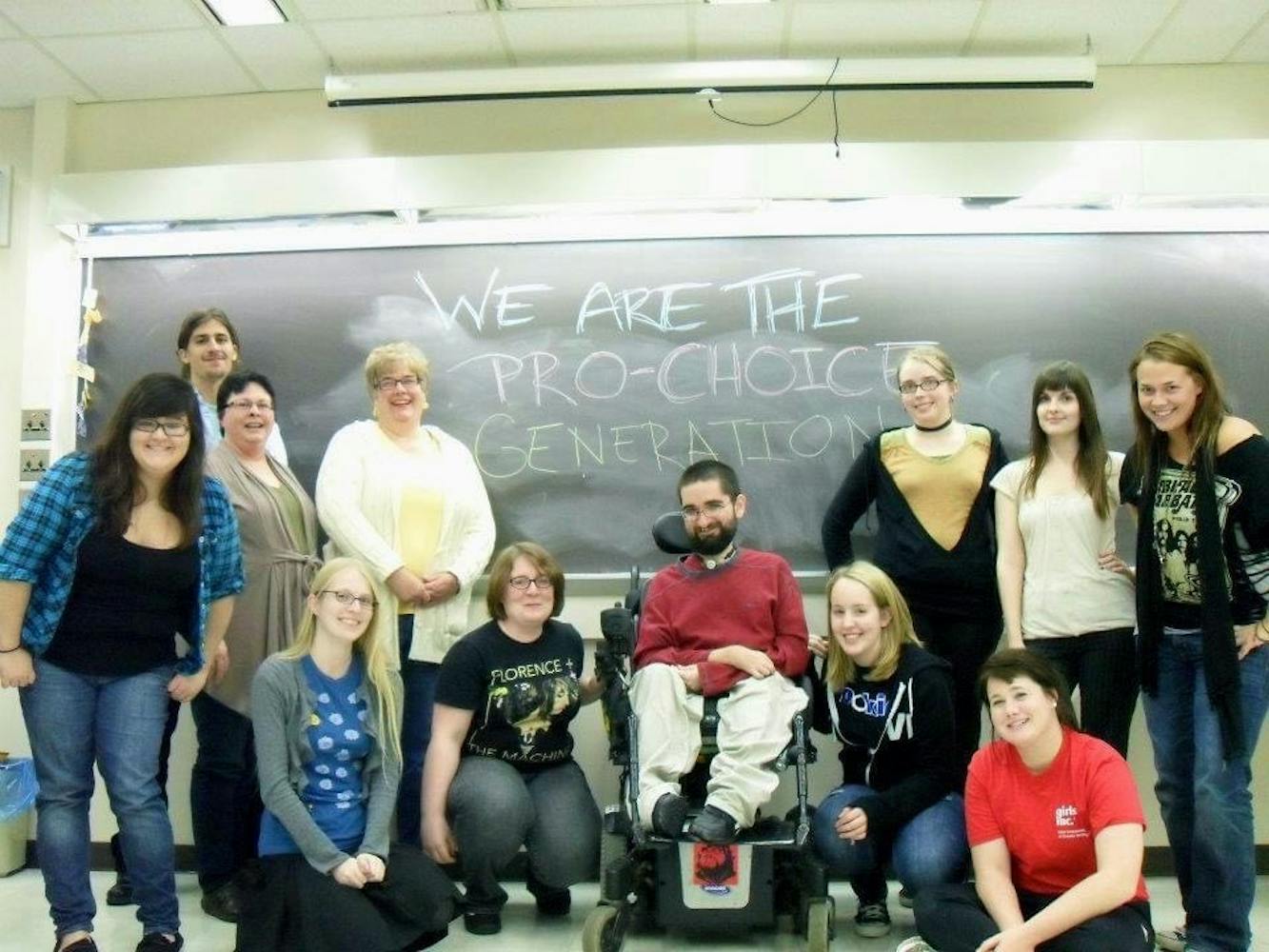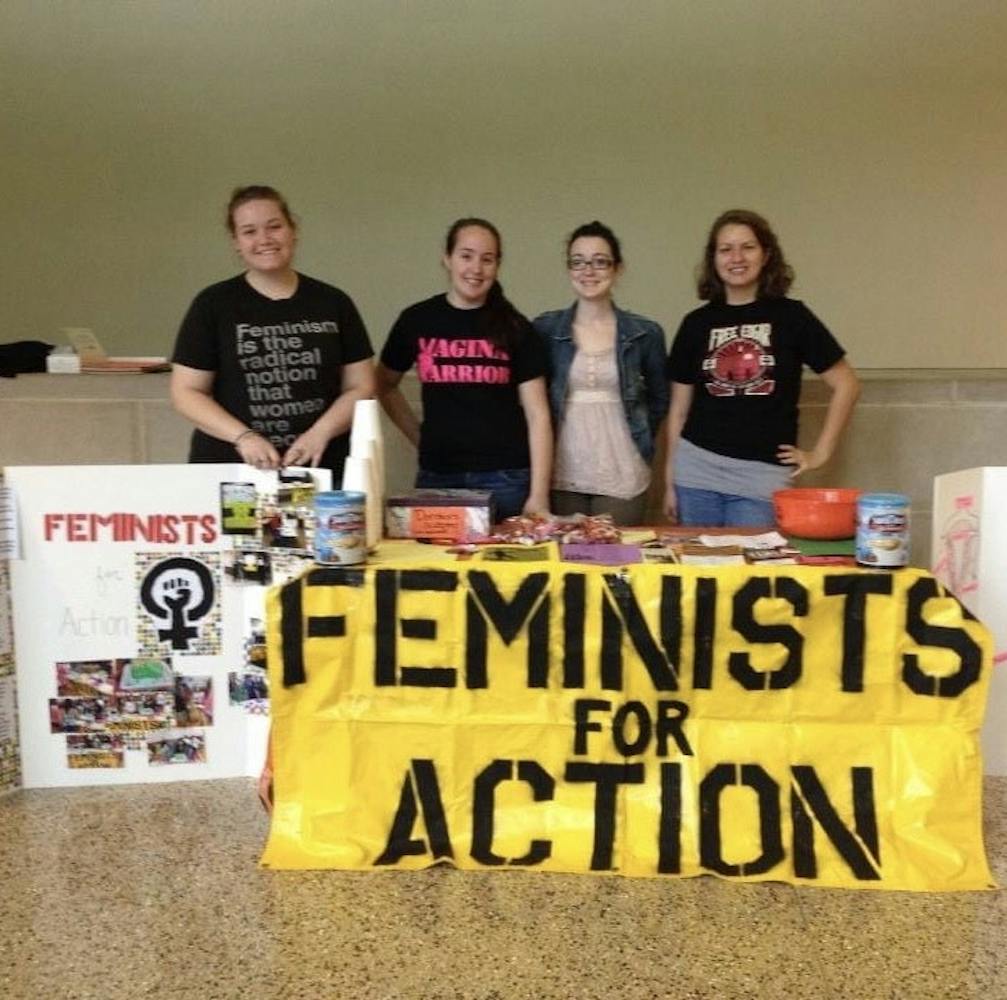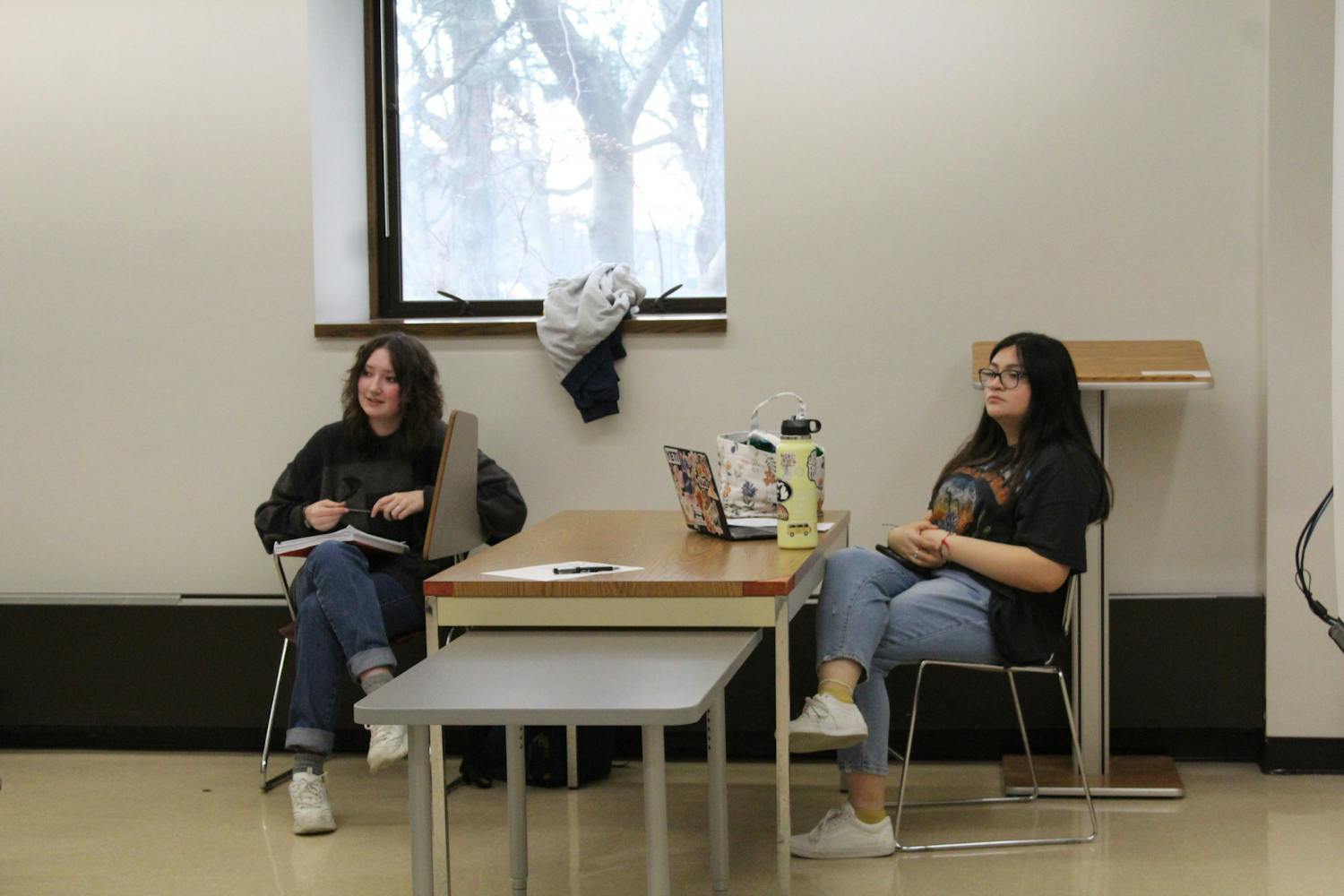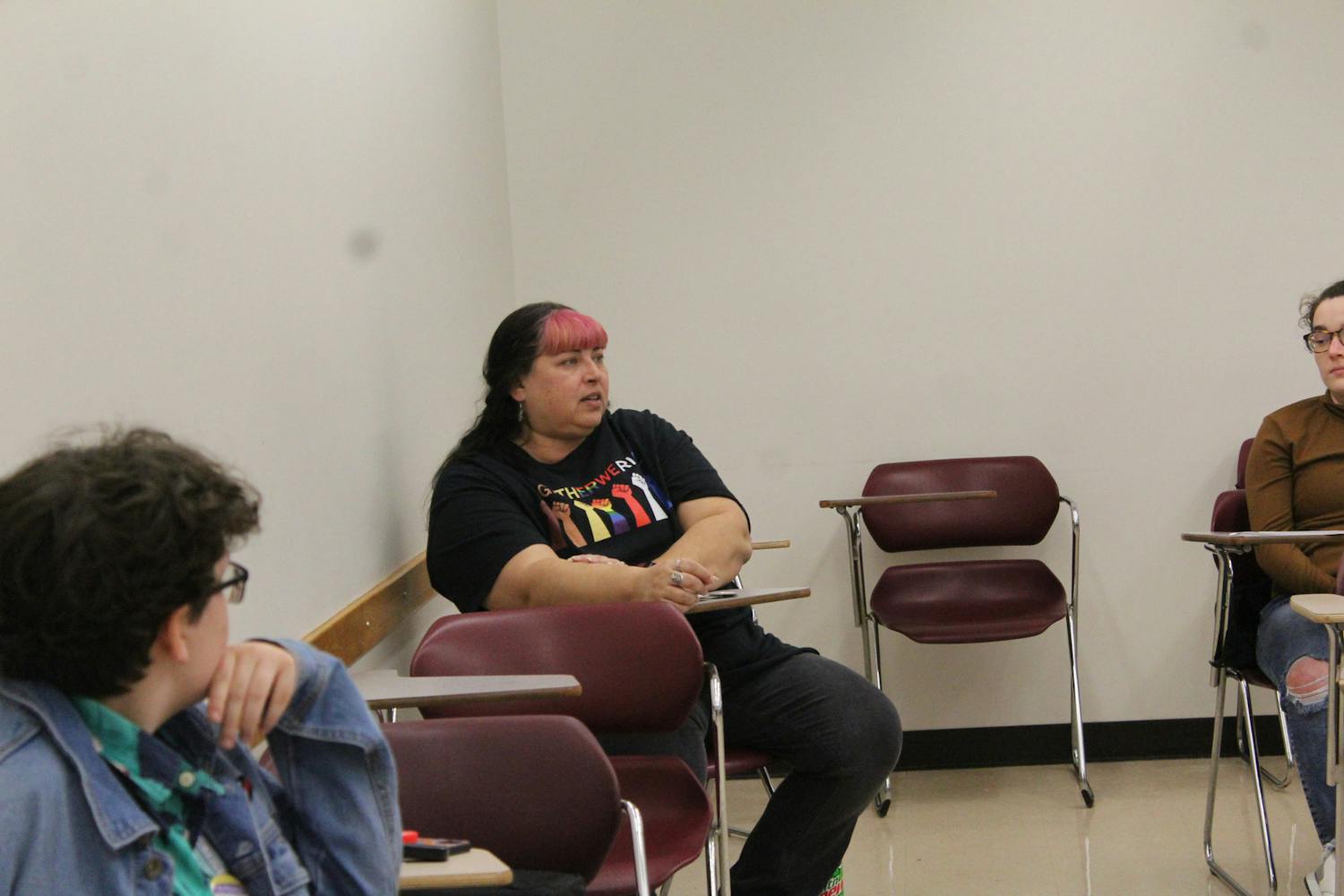In 1992, five students in the Women and Gender Studies program at Ball State University started an organization dedicated to empowering women, men and children through advocacy and education. Since then, Feminists for Action (FFA) has continuously encouraged members to have thought-provoking discussions and has organized events to benefit feminist causes.
FFA became an official campus student organization in February 1993 after founding members Jayne Martin, Jennifer Dill, Andrea Klausing, Debra Myers and Rachael Winters came up with the idea. Their ultimate goal was an organization where students could feel comfortable coming together to work on women’s issues.
“Feminists for Action started when women working in the offices of women and gender studies decided they wanted to educate themselves and their peers more by coming together and talking about feminist issues,” Rachael Smith, current faculty adviser for FFA and assistant lecturer for women and gender studies at Ball State, said. “They wanted to develop a greater understanding of the topic and convey that feminism is not a bad word, it’s not just for women, and it’s not just for white women.”
Over the years, the organization has succeeded in its mission by organizing various events in support of women to combat the multitude of feminist issues they’re presented with daily.
These include prevalent problems in today’s society such as equal pay, rape culture, reproductive rights, etc. If anti-abortion activists were out protesting on Ball State’s campus, FFA students would advocate for abortion rights on the same day. If it seemed like students were practicing unsafe sex consistently, FFA would host an event with free hot cocoa and condoms.
The organization grew substantially from what it was, as there was a time when it consisted of only white women. In recent years, they’ve acquired more membership from men, people of color and the LGBTQ+ community.
“Feminism is about equality for everybody. At the same time, it recognizes that women are underrepresented,” Smith said. “They don’t have positions of power and are frequently survivors of violence and abuse. A student-run organization like this is important in this sense.”
In 1993, FFA published its first feminist newsletter, “The ‘F’ Word.” It accepted student submissions of women’s writings, poetry, short fiction, journal entries and essays. The goal was to discover what was on the minds of college women at Ball State while learning how they could impact the community with responses to these thoughts.
By 1995, FFA had new student coordinators and hosted themed meetings each month. It added the Clothesline Project, a display of clothing that demonstrated the impact of violence on women, to their programming and a “Yes, We Can Cook” bake sale.
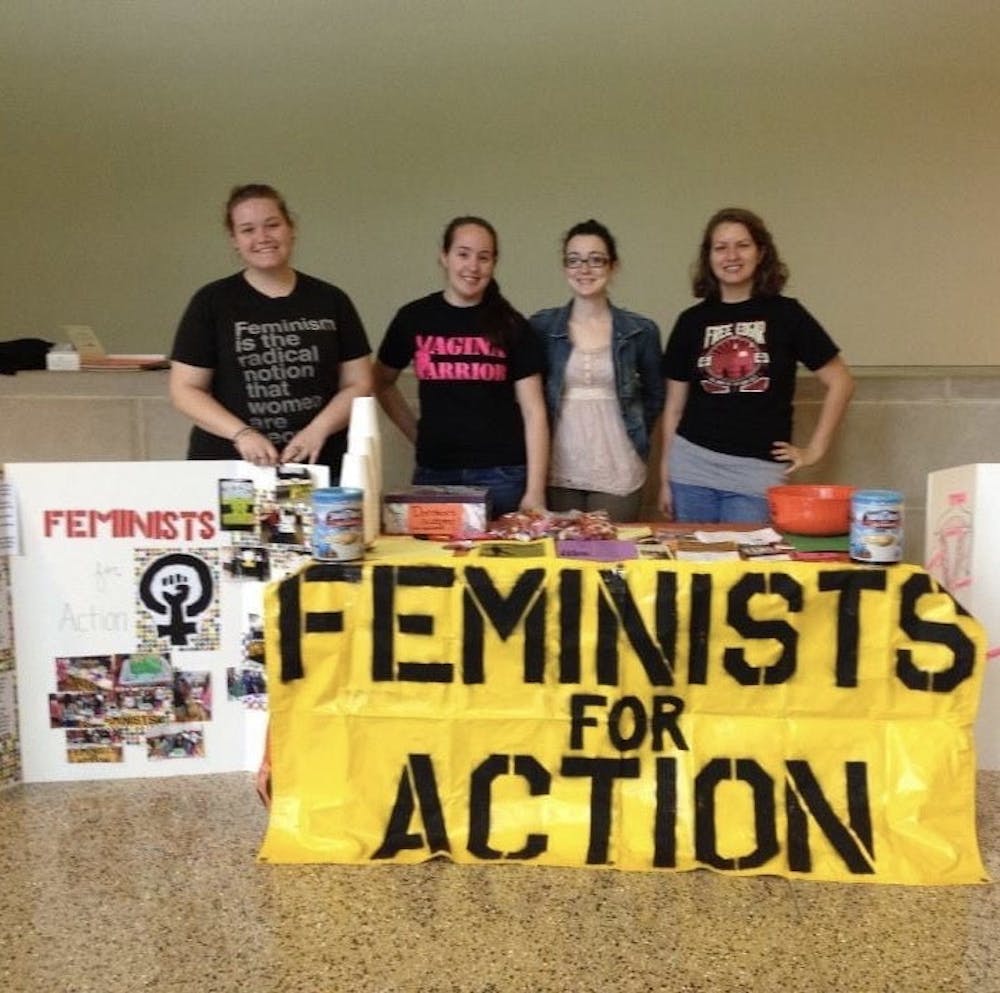
The group has consistently offered various influential programs since it began. It organized trips and candlelight vigils, film screenings on campus and hosted regular educational meetings.
“When I advised it, for a long time, the executive board would have weekly or monthly meetings. Even if there wasn’t an event to do, they would have an educational topic of ‘Feminism 101’ or talk about bills that might be threatening to be passed in the State House,” Courtney Jarrett, Office of Disability Services director at Ball State and previous faculty adviser for Feminists for Action, said. “They sometimes even had people come from Health Promotion and Advocacy to talk about safe sex or any updates to the rules and regulations of Title Ⅸ. The organization has always been educational, which is my favorite.”
In 1999, FFA co-sponsored a “Party for the People” with another student group, Anti-Racist Action, featuring music and food worldwide.
A hallmark of FFA has been the “Slut Walk,” an annual event started in 2014 to protest victim blaming and “slut shaming.” This was done to reclaim the word “slut,” a word at times used to degrade women.
Students would meet at the Quad and wear whatever they wanted, which included pasties, speedos, bralettes, etc. They would then march with posters stating, “It doesn’t matter what I’m wearing!” and “No catcalls!”
Additionally, Smith said this was done to combat the stereotype that women are seen as objects and that men should not be applauded for their sexual conquests while women are called “slut” and “whore” for theirs.
“People would get up and share stories about experiences they’ve had based on what they were wearing, which was powerful,” Jarrett said. “The crowd that gathered was very supportive every year we did that.”
“Take Back the Night” programming was another event frequently organized by FFA for a time before sororities on campus used it as a part of their philanthropy. The event is similar to the “Slut Walk” but instead occurs at nighttime.
The group planned the first march on campus in November 1992 and continued the tradition into the early 2000s. This was done to show women should be able to safely walk through campus without having to carry their keys, talk on the phone with somebody or own mace just because they could potentially be in danger of getting raped or abused by men.
“Those identifying as women are told they shouldn’t go out alone at night. They’re told to have mace or pepper spray if they go out alone. They’re told they need to have their roommate or someone who identifies as male to walk them home because that way they will be safe,” Smith said. “Quite frankly, it’s BS. As humans, people who identify as female should be able to walk around at night and not be afraid. That’s the purpose of ‘Take Back the Night.’”
FFA has also served as an organizing unit for protest and activism. This proved especially true when it started protesting against unjust proposed bills and legislation. In 2011, the group rallied in downtown Muncie to oppose Rep. Mike Pence and the Title X Abortion Provider Prohibition Act.
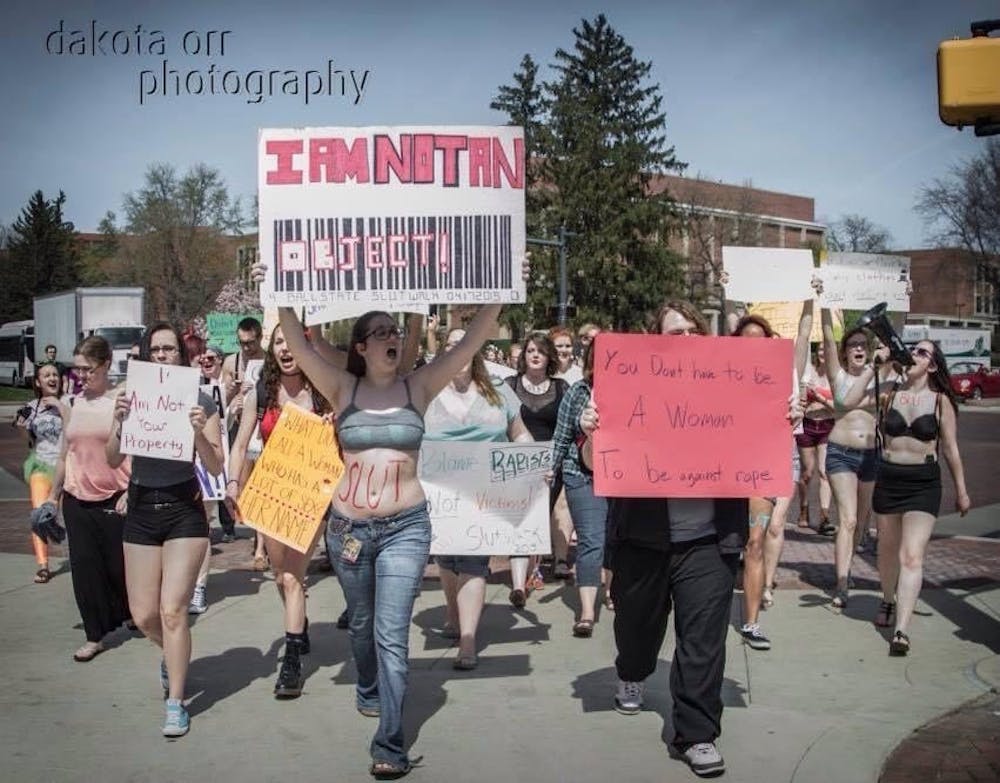
Today, the group continues to pursue feminist values — social, political and economic equality of all people. They do this by exemplifying intersectionality in their activities and committing to enhancing the feminist community on campus with opportunities for education, leadership and action.
“Women are a marginalized group, which is why feminist groups are so important to campuses,” Aly Austin, former Ball State student and president for FFA from 2013-2015, said. “It allows students to unite, find community and figure out how to put our frustrations and anxieties to work to make a difference.”
Currently, FFA is in the rebuilding stages of its organization. Due to the COVID-19 pandemic, the organization hasn’t been able to organize the events or educational talks it traditionally has. Now that school is back in-person, FFA is figuring out how to reach more people and be more representative of the student body.
“As a group that’s focused on feminism, FFA will always be focused on working to center the voices of more marginalized populations, and especially making sure that women of color are central to the work that they do. This is how they can ensure they’re being very inclusive and seeing who has a seat at the table,” Austin said. “This is important because, historically, feminism has not had a very intersexual lens and has been predominantly white, straight women.”
FFA’s first general assembly meeting was officially held Feb. 23, but it will continue to have these meetings every Thursday from 5-6 p.m. in room 103 in the Burkhardt Building for the rest of the semester. After the executive board is rebuilt, the organization will be planning some of the traditional events it held in the past while working to incorporate new ones on campus in the coming years.
Contact Meghan Braddy with comments via email at meghan.braddy@bsu.edu.

